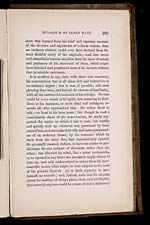James Watt (1736-1819)
Eulogium of James Watt
EULOGIUM OF JAMES WATT.
203
more was learned from his brief and vigorous account
of the theories and arguments of tedious writers, than
an ordinary student could ever have derived from the
most faithful study of the originals,—and that errors
and absurdities became manifest from the mere clearness
and plainness of his statement of them, which might
have dcluded and perplexed most of his hearers without
that invaluable assistance.
It is needless to say, that, with those vast resources,
his conversation was at all times rich and instructive in
no ordinary degree; but it was, if possible, still more
pleasing than wise, and had all the charms of familiarity,
with all the substantial treasures of knowledge. No man
could be more social in his spirit, less assuming or fasti-
dious in his manners, or more kind and indulgent to-
wards all who approached him. He rather liked to
talk,—at least in his later years; but though he took a
considerable share of the conversation, he rarely sug-
gested the topics on which it was to turn, but readily
and quietly took up whatever was presented by those
around him, and astonished the idle and barren propound-
ers of an ordinary theme, by the treasures which he
drew from the mine they had unconsciously opened.
He generally seemed, indeed, to have no choice or pre-
dilection for one subject of discourse rather than an-
other; but allowed his mind, like a great cyclopædia,
to be opened at any letter his associates might choose to
turn up, and only endeavoured to select from his inex-
haustible stores what might be best adapted to the taste
of his present hearers. As to their capacity he gave
himself no trouble; and, indeed, such was his singular
talent for making all things plain, clear, and intelligible,
that scarcely any one could be aware of such a deficiency


